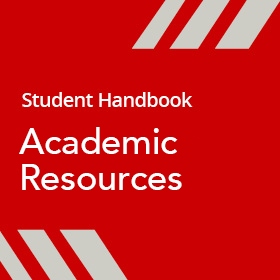The Docentra Advantage: Top-Tier Resources Customized for Academic Excellence
Where to Find High-grade Academic Resources for Your Research Study
Identifying premium academic resources is crucial for rigorous research study, yet browsing the substantial landscape of available materials can be daunting. In addition, on-line scholastic data sources like JSTOR and PubMed accumulated scholarly posts, while open access journals supply even more comprehensive accessibility to study findings. Comprehending just how to leverage these resources effectively might considerably influence your study outcomes.
University Libraries

Beyond physical collections, university libraries commonly supply specialized research study assistance, consisting of assessments with curators that possess subject know-how (Docentra). This assistance can dramatically boost the efficiency and performance of the research procedure, allowing individuals to browse intricate information landscapes with better convenience
In addition, many collections give access to rare and archival products, which can be indispensable for sophisticated research projects. Such one-of-a-kind resources usually consist of primary documents, manuscripts, and historic collections that are not easily offered elsewhere.
Additionally, university libraries often hold workshops and seminars aimed at improving details literacy abilities. These initiatives encourage students and professors to seriously examine sources, a critical ability in today's information-rich atmosphere. Generally, university collections not just function as repositories of expertise however additionally act as dynamic hubs that cultivate scholastic development and development.
Online Academic Databases
In the world of scholastic research, on the internet academic databases play a critical duty in giving students and scholars with prompt accessibility to a wealth of academic articles, journals, and various other vital sources. These digital repositories work as centralized platforms where individuals can efficiently look for peer-reviewed literary works throughout various self-controls.
Popular databases such as JSTOR, PubMed, and Scopus host substantial collections that cover a wide range of subjects, from the liberal arts to the sciences. Docentra. By utilizing innovative search performances, scientists can refine their queries, filter outcomes by magazine date, and access citation devices, thus improving the research procedure's performance and precision
In addition, several data sources offer features like notifies for new publications and the ability to save and arrange posts, further improving the research experience. Memberships to these data sources are typically offered through academic organizations, approving pupils and professor unlimited access to premium web content.
Open Access Journals
Progressively, scientists are turning to open up gain access to journals as a complementary resource to standard academic data sources. These journals offer a beneficial platform for sharing research study searchings for without the monetary barriers typically related to subscription-based publications. Open up gain access to designs permit totally free on-line access to scholarly posts, guaranteeing that research comes to a wider audience, including practitioners, policymakers, and the general public.
The high quality of open gain access to journals has significantly enhanced, with numerous sticking to extensive peer-review procedures and being indexed in trusted databases. This shift has promoted better transparency and collaboration in the academic community, as scientists can share their job extra conveniently and obtain responses from diverse point of views.
Furthermore, the proliferation of open gain access to journals lines up with the international movement in the direction of open science, advertising the concept that openly funded study should be freely readily available to all. Scientists looking for premium scholastic resources should take into consideration trustworthy open accessibility journals, such as those noted in the Directory of Open Access Journals (DOAJ) or those published by recognized academic societies. By incorporating open accessibility journals right into their research methods, scholars can enhance the visibility and impact of their work.
ResearchGate and Academia.edu
ResearchGate and Academia.edu have actually arised as pivotal platforms for scholastic networking and knowledge sharing, with millions of scientists leveraging website here these sites to distribute their work and attach with peers. Both platforms enable customers to produce accounts that showcase their publications, study interests, and academic success, facilitating higher presence within the scholarly neighborhood.
ResearchGate, established in 2008, focuses on promoting cooperation among researchers via features such as research partnership devices, task sharing, and question-and-answer discussion forums. Users can publish their documents, engage in discussions, and comply with the job of others, improving the collective potential of their research. The system also provides metrics theoretically presence and downloads, permitting scientists to determine the impact of their work.
Academia.edu, launched in 2008 too, operates similarly but emphasizes the sharing of academic papers. Individuals can adhere to specific research topics and receive updates on new magazines within their areas of rate of interest. Additionally, Academia.edu uses analytics on reader interaction, helping scientists comprehend their target market much better.
Both systems act as valuable resources for accessing high-quality academic web content and fostering connections that can bring about impactful partnerships.
Google Scholar and Beyond
Academic networking platforms like ResearchGate and Academia.edu play a substantial role in distributing study, yet Google Scholar uses a different dimension by serving as a thorough internet search engine for scholarly literary works. It indexes a huge range of sources, including peer-reviewed posts, theses, publications, conference proceedings, and licenses, making it an indispensable tool for scientists throughout self-controls.
Google Scholar supplies many attributes that improve research effectiveness. The citation tracking feature permits customers to see exactly how frequently a paper has been mentioned, giving understandings right into its impact within the academia. Additionally, the "associated write-ups" function assists researchers uncover comparable studies, helping with an extra detailed expedition of a subject.

Verdict
To conclude, accessing high-quality scholastic resources is important for extensive study. University collections provide extensive collections and professional assistance, while on the internet scholastic data sources such as JSTOR and PubMed systematize academic short articles. Open up access journals remove visit site economic barriers, cultivating larger circulation of expertise. Systems like ResearchGate and Academia.edu improve partnership among scientists. Ultimately, Google Scholar provides detailed search capabilities and citation tracking. Utilizing these resources collectively can significantly improve the high quality and deepness of scholastic research.